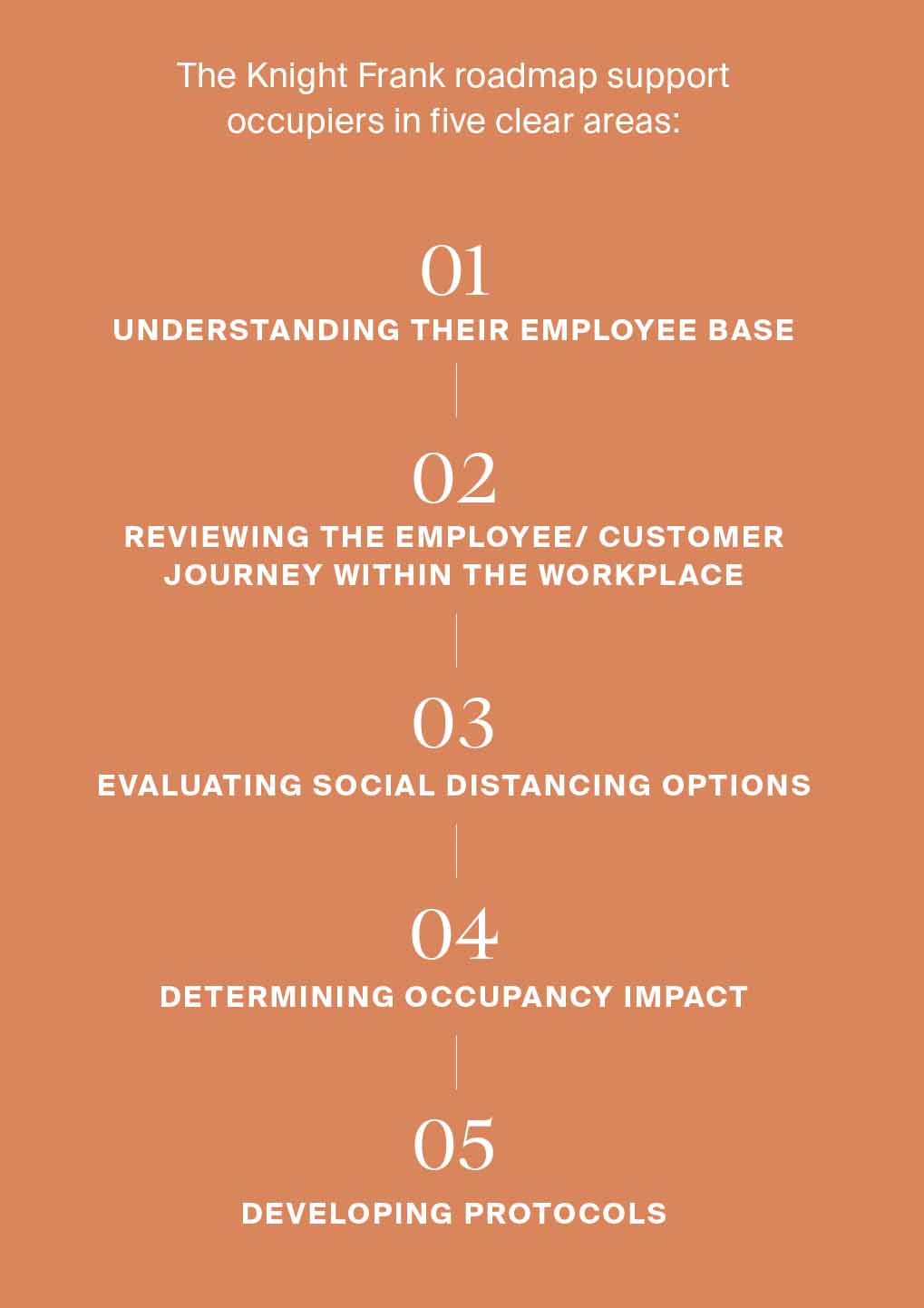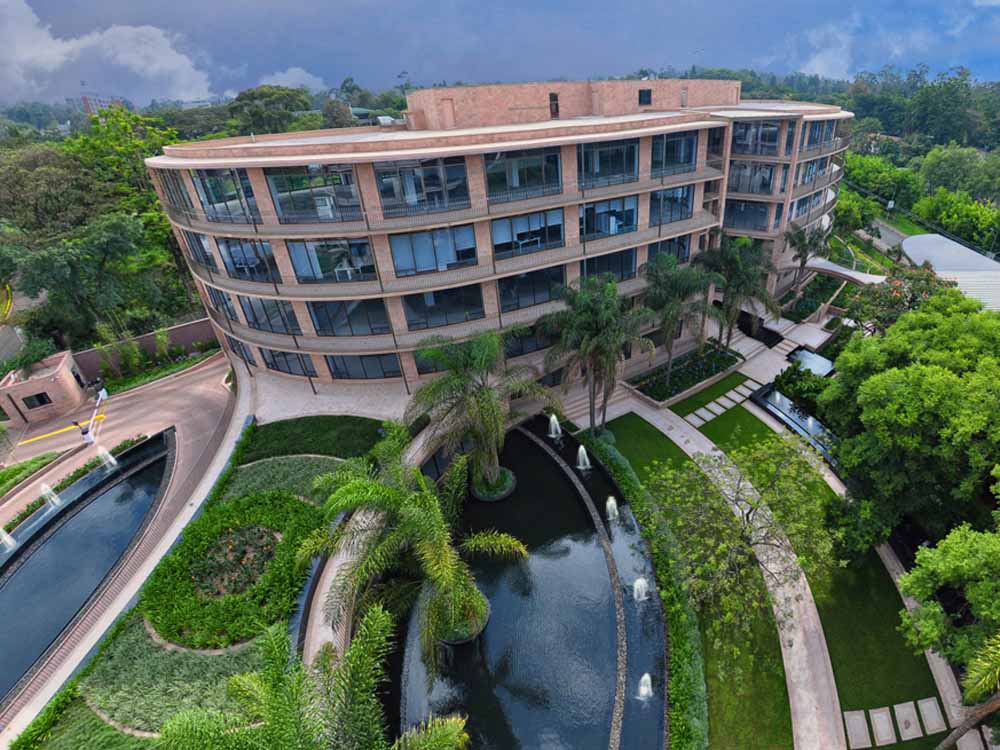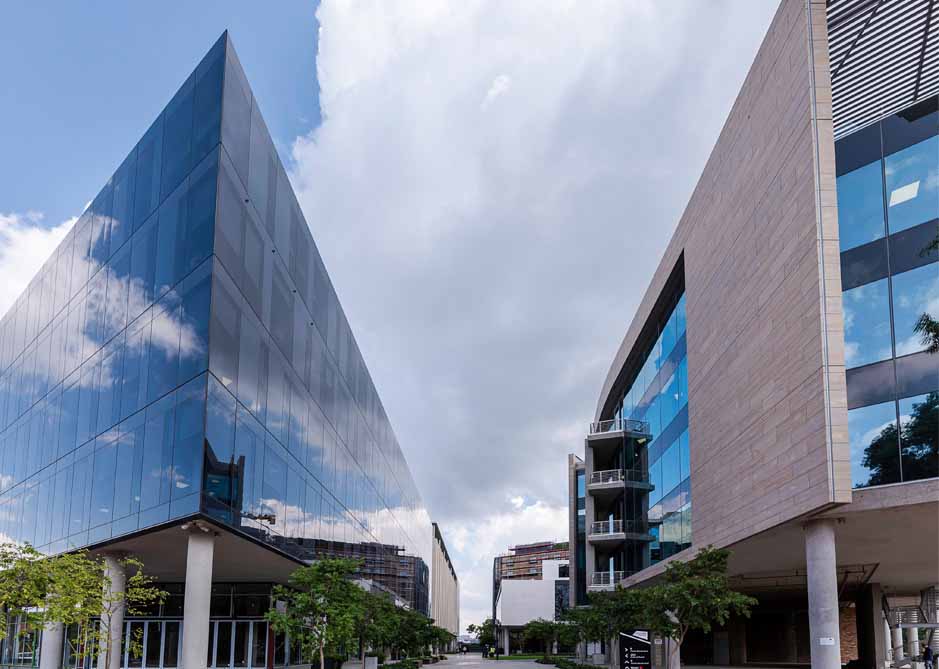The future of office space in Africa after Covid-19
Far from spelling the end of the office, Covid-19 has opened up a future full of new possibilities. Two members of Knight Frank’s specialist Occupier Services team shares their thoughts on what lies ahead
5 minutes to read
New technology has always evoked panic as to the future of the workplace, and consequently the future of the office. Over the past few years, debate has raged about how the adoption of technologies like artificial intelligence will impact human productivity. Yet it is the pandemic that has offered us the most meaningful glimpse into the future.
Despite initial predictions to the contrary, one message has emerged clearly – offices still have a vital role to play in the future of work. As Africa and the rest of the world gear up towards re-occupancy, collaboration, flexibility, health and wellbeing will be central.
The office environment will need to be reimagined to include aspects that support employee health and wellbeing. Already, some of these are integral to design in prime offices across Africa. These include improved indoor air quality, natural lighting, healthy food and beverage offers, gyms and fitness classes, indoor gardens and green spaces, cycle storage, showers, maintenance services and high-end spa facilities.
Moving forward, we anticipate that best-in-class office buildings will be more focused on physical and mental wellbeing by offering direct access to green spaces, such as the provision of gardens on terraces; sanctuary spaces such as contemplation rooms where workers can disconnect from the grid, focus or reconnect with themselves; and educational events programmes that seek to promote a better work/life balance.
With many of the office schemes in the development pipeline in key markets across Africa expected to reflect these aspects, the flight to quality is set to remain a key trend. We anticipate this will provide greater stability across the prime office market in Africa which has suffered from
a sharp supply-demand imbalance, widening vacancy rates and falling rents over the past year.
Re-occupancy
As we move back to the office, the immediate post-crisis period will present an opportunity for occupiers to make their real estate needs
truly strategic and integral to business transformation. Through our re-occupancy roadmap (see right for overview), the Knight Frank Workplace Consultancy team has been equipping occupiers with guidelines and information to help ensure a safe return to work.
The roadmap identifies two categories of change that will need to occur for safe re-entry. The first is behavioural change: for example, ensuring strict protocols – such as clear desk policies – are applied, and that social distancing is possible within the workplace. The second is environmental change, including increased airflow, changing heating ventilation and air conditioning filters, and enhancing cleaning regimes. As such, we anticipate that ensuring the health, safety and wellbeing of occupiers will revolve around these environmental and behavioural elements.
Sustainability
Sustainability is expected to remain a key requirement for office building design, management and fit-out. While environmental, social, governance (ESG) and allied issues can often lose momentum during recessions, the sea change in sentiment surrounding the correlation between taking better care of the environment and enjoying better quality of life ensures this will remain top of mind.
Across Africa, this is partly being addressed through a combination of tighter legislation, compliance requirements and evolving public and corporate expectations. Further, businesses are realising that embracing the transition to a low carbon economy is not just a question of corporate social responsibility, it also makes good business sense.
With staff costs typically representing 85–90% of total operational costs, the opportunity to improve the working environment should be a high priority for any organisation. Any incremental improvement to staff productivity, reduced absenteeism, improvement in staff retention and recruitment will be a significant benefit to profitability. This is further enhanced through sustainable design considerations within a fit-out to deliver operational cost savings directly through reduced energy and water use, and responsible waste disposal.
Innovation
Innovation will be increasingly sought by landlords in order to ensure the health and wellbeing of their employees. In the short term this might be in the form of body temperature and automated security scanners. However, in the long term, the move towards smart buildings is expected to be the norm for prime office space across the continent.
This is anticipated to be reflected in the building fabric through features including development and installation of touchless features such as automatic doors, installation of self-flushing toilets, automated faucets and soap-dispensers in restrooms, motion-activated lighting, face recognition ID building entry points and software automation that ensures employees’ mental wellbeing.
Further, landlords can benefit from reduced operational and maintenance costs within their properties, as most of these technologies are sustainably designed.
Anthony Havelock is Head of Occupier Services for Africa. For more information contact him at: anthony.havelock@ke.knightfrank.com
Winnie Gachagua is Corporate Real Estate Services Manager for Kenya. For more information contact her at: winnie.gachagua@ke.knightfrank.com


Vienna Court
Located in Nairobi, Kenya, Vienna Court is one of our best examples of a sustainable and smart workplace. The LEED-certified office complex comprises two crescent-shaped office wings flanking the central courtyard garden and reflecting pools to the east and west of the property.
A core element that defines the building is its commitment to sustainability since day one, from site selection and the use of locally-sourced building materials to its innovative power, lighting and ventilation systems. This commitment to innovation is brought to life through availability of electric charging stations and bicycle parking slots.
The building is further designed to foster collaboration, encourage communication and inspire creativity through bespoke spaces such as
flexible meeting spaces, lush green areas, and the in-house gym and cafeteria.

Oxford Parks Green
Located in Johannesburg, South Africa, the prestigious premium grade Oxford Parks development is not only rapidly changing the skyline of the Rosebank Central Business District but also redefining what a sustainable and flexible workplace means.
Developed by Intaprop, the precinct consists of five completed office buildings, with WDB House on the northern boundary and four commercial buildings in the southern hub. The new Radisson RED building is due to be completed in April 2021.
Sustainability is at the heart of this development, with all buildings designed with state-of-the-art sustainable features and energy efficient systems. The buildings are further designed to foster employee wellness with numerous green spaces found throughout the development.